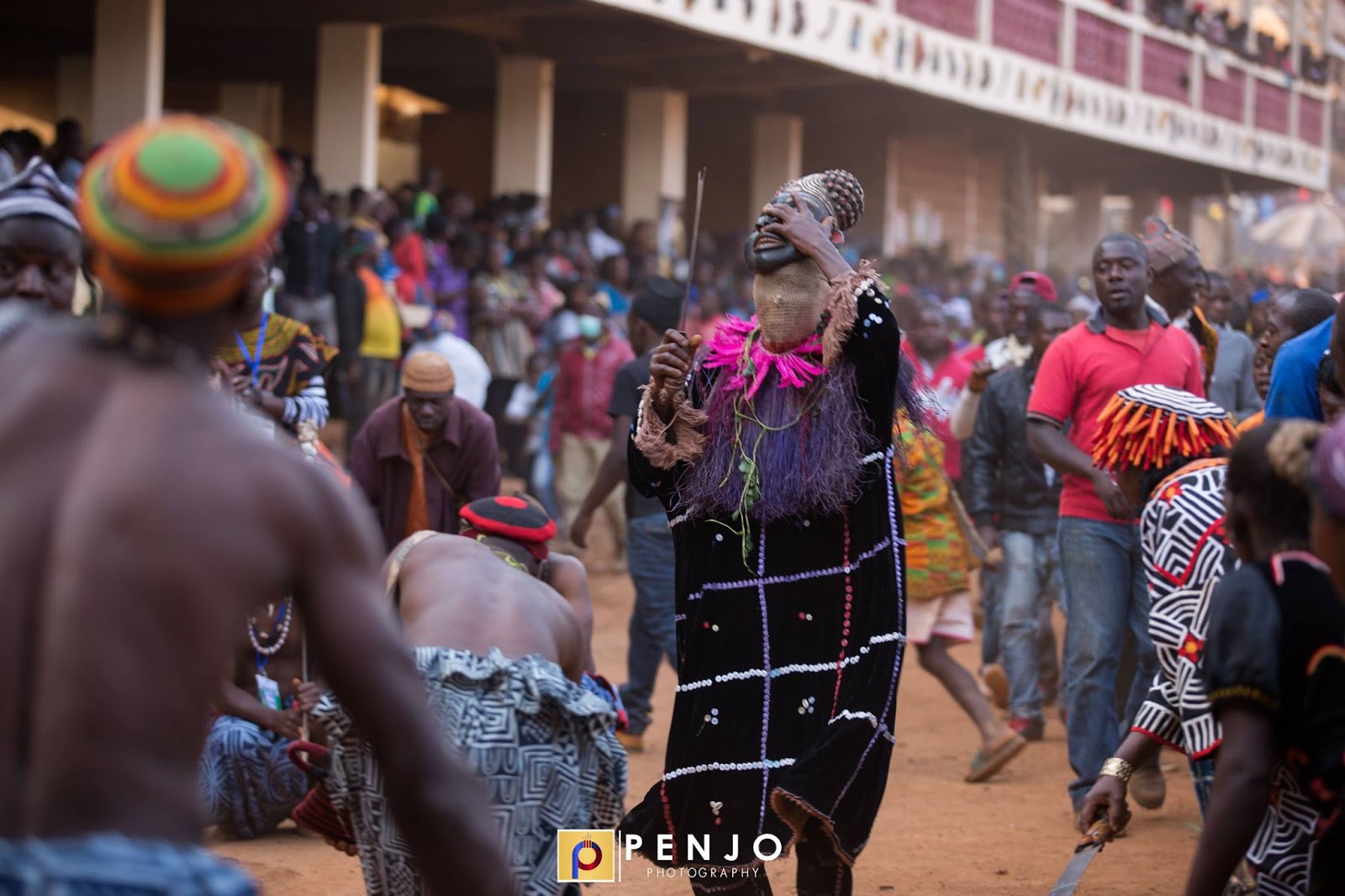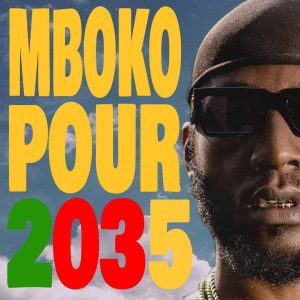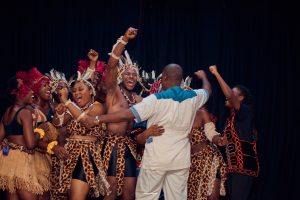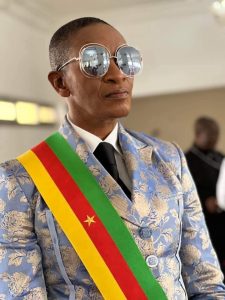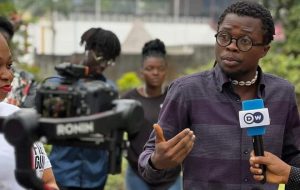Fifteen years ago, the very first ever edition of the Ngonnso’ cultural festival named after the founder of the Nso people, was organized. The festival marked the beginning of what was to become one of the most prominent cultural gatherings in the entire Bui division.
Many years down the line, the communing was threatened by the Anglophone armed conflict which continues to consume many lives. Overstepping its political limits, the armed conflict roped in traditional authorities and their institutions. Not only have many been kidnapped within the context of the crisis, but others have been tortured and even killed.
This unfortunate turn is not peculiar to the Nso people and their land. It has spanned cross practically all other tribes and villages in the Anglophone regions, unhinging the people from their cultural practices and beliefs. It was therefore a given that with the work put in for a return to normalcy, these cultural ideologies and institutions be accorded the pride of place they deserve.
Traditional authorities, such as chiefs, fons, and lamidos, play an important role in the social and political life in the regions. They are custodians of the culture and traditions of their communities, and act as intermediaries between the state and the people. They have a significant influence on local governance, conflict resolution, and development.
However, they too have also faced challenges and threats in the context of the anglophone crisis. Some have been targeted, killed, kidnapped, tortured, or forced to flee their palaces. This automatically put them in a tight spot, minimizing their abilities to foster social cohesion and trust among the diverse communities that have been divided and traumatized by the conflict.
In a bid to empower them and lubricate their path for achieving this, government has been upping the ante on support accorded them for their work. It was these which government took into account, incorporating custodians of culture into the Special Status puzzle. More recently, the government adopted a new operational strategy for the reconstruction and development of the anglophone regions that focuses on a bottom-up approach that involves the participation of the local population at various levels.
The reconstruction caravan has been touring the North West and South West regions, formerly plagued by outrage, gunfire and bloodletting. Its committee’s work is marked by among others, rebuilding of social infrastructure as well as continuous dialogue with the concerned populations. In collaboration with the traditional authorities, government is seeking to rebuild the physical as well as mental and social fibres of the regions, torn to shreds by the war.
Nature’s hand
But nature too is playing its own part. The link between the ancestors and the population once severed, is gradually being rebuilt, reconstructed and reinvented. Cultural festivals are gaining steam once more and natives of the regions, increasingly returning home to commune with each other. In this regard, festivals and traditional events can play a vital role in promoting a culture of dialogue, tolerance, and reconciliation.
Festivals and traditional events are expressions of the rich and diverse heritage of the Anglophone regions, which have been influenced by various cultural backgrounds, including indigenous, British, and Nigerian aspects. They are also occasions for celebrating identity, unity, and solidarity among different groups and generations. David Binder was right when he said they make cities better places to live.
Amazingly, culture like some other immediate doings of Mother Nature, does not always need a state hand to flourish or rise. Beyond the confines of government action, has been a more powerful force – the will of the people. It was this will of the people that pulled thousands to Mankon palace for the Nukwi Ne Abubte – the Official Homage and Celebration of the immediate past Fon of Mankon His Royal Highness Fo Angwafo III, in December 2022. Many from far and near thronged the streets of Mankon, once deserted and left to arms bearers. It was these same streets that months prior, had been rendered inhabitable by separatist fighters who attempted sabotaging works on the Ntahbeng-Mankon Palace Road.
Another cultural gathering that was able to stand tall amidst the violence and threats, was the Limbe Festival of Arts and Culture, FESTAC. The festival has always featured various artistic performances, exhibitions, workshops, and competitions that showcased the talents and skills of the local youth. The festival also aims to educate the young people about their history and culture, as well as to instill in them a sense of pride and belonging.
In times of crisis, it was also a rare moment of joy and peace for the people of Limbe and the South West region as a whole, who had been deprived of similar opportunities due to the conflict. The festival remi an opportunity for them to express their hopes and aspirations for a peaceful future, a future they are nearly living today.
Prior to its suspension in 2020 due to the COVID pandemic, the festival served as an outlet for unbottling the frustrations and fears of the people who had been compelled to live with the sound of the gun and sights of blood.
This and other festivals and cultural gatherings have and continue to serve as a platform for dialogue and reconciliation among different stakeholders in the anglophone crisis. They have brought together representatives from the government, civil society, traditional authorities, religious leaders, women’s groups, youth groups, and provided a space for them to exchange views and experiences on the causes and consequences of the conflict, as well as to explore ways to resolve it peacefully.
However, it will be dishonest to assert that these festivals and traditional events alone are enough to end the armed conflict. They only serve as complimentary to other measures meant to address the bone of contention. These include political dialogue, constitutional reform, security sector reform, humanitarian assistance, human rights protection, justice and accountability, economic development, social inclusion, and environmental sustainability.
In addition to these, the link between traditional rulers and their subjects, severed in many localities, would be of great benefit if rebuilt. If adequately empowered by their subjects, they can play a positive role in the reconstruction process of the Anglophone regions. They can help to restore trust and dialogue among the different actors in the conflict, as well as between the state and the population. Their inputs too can promote a culture of peace and reconciliation among their communities, by denouncing violence, facilitating humanitarian access, supporting victims of human rights violations, and encouraging disarmament and demobilization of combatants.
These adequately sum up to what is expected of them through the House of Chiefs, instituted as part of government’s Special Status package to the conflict-hit regions. Achieving this would permit them better monitor and evaluate the impact of the reconstruction and development projects funded by the Presidential Plan for the Reconstruction and Development (PPRD) of the Anglophone regions as well as other community-initiated solutions.
Until the links are reestablished, many traditional rulers would more likely continue to rule by proxy, visiting their lands only with the aid of the forces of law and order. This not only undermines their authority, but also has the potential to make them the same ‘monsters’ communities rise against. All other means to empower them would have been much ado over nothing, a failed attempt to deliver the spiritual experience their personalities empower them to.

